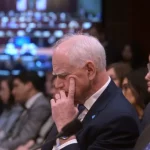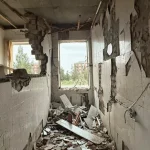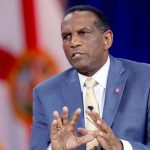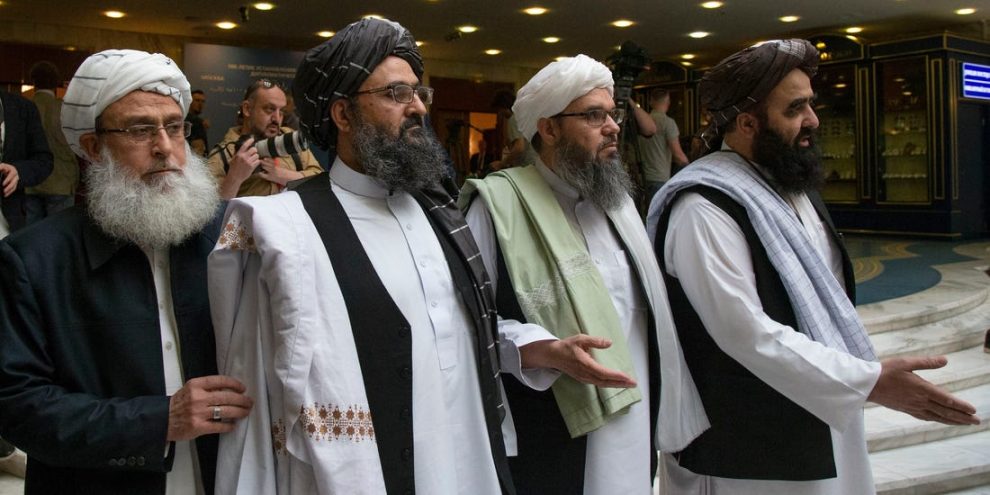The New York Times is facing backlash this week from one of its own correspondents in light of the publication’s controversial decision to run an Op-Ed penned by a notorious multinational terror leader.
“What We, the Taliban, Want” was the headline Thursday as Sirajuddin Haqqani, the deputy to Taliban supreme commander Hibatullah Akhundzada, made his New York Times debut.
Professing deep lamentation for the human costs of the ongoing 18-year war in Afghanistan, Haqqani claimed in his open letter to the world that he looked forward to the signing of an upcoming peace deal with the U.S. — one the Taliban will allegedly work to respect “every single provision” of as the Afghan people strive toward lasting stability.
Walz-Ellison administration ‘enabled’ Minnesota’s fraud scandal: Guy Benson
NYC Dept of Education employee arrested, charged with murder of Bronx father
Savannah Guthrie returns to ‘Today’ show studio for first time since mother went missing
Iran widens regional war with first strike into Azerbaijan
Tom Emmer calls for Tim Walz, Keith Ellison to ‘serve jail time’ if fraud coverup allegations are true
Republican Rep Burgess Owens to retire from Congress when term ends
VIDEO: College Basketball Ref Knocked Out Cold When Players Turn Violent on Court
DOJ Ends Investigation Into Autopen Scandal With Zero Charges, Grand Juries, or Indictments
The ‘woo-woo’ philosophy of Trump’s surgeon general pick
Illegal’s dragging of ICE agent shows the exact danger the officer who shot Renee Good feared, expert says
The Iran Strikes Have Flooded X with So Much AI Disinformation That I Went Crawling Back to Cable News
‘Blankies,’ ICE tactics and luxury jets: Top moments from Noem’s House testimony
Op-Ed: America’s Education Crisis, and How to Solve It
Second suspect arrested after NYC snowball fight sends 2 police officers to hospital
DOJ quietly closes autopen investigation targeting Biden and aides
Times Afghanistan correspondent Mujib Mashal, howver, did not look kindly on the decision to publish Haqqani’s words, reminding readers on Twitter the terror leader has been anything but a “peace-maker” as the bloody conflict has dragged on through its second decade:
The piece by Siraj Haqqani in @nytopinion – which's independent of our news operations & judgment – omits the most fundamental fact: that Siraj is no Taliban peace-maker as he paints himself, that he's behind some of most ruthless attacks of this war with many civilian lives lost
— Mujib Mashal (@MujMash) February 20, 2020
“The piece by Siraj Haqqani in @nytopinion — which’s independent of our news operations & judgment – omits the most fundamental fact: that Siraj is no Taliban peace-maker as he paints himself,” Mashal wrote Thursday. “He’s behind some of most ruthless attacks of this war with many civilian lives lost.”
Mashal followed up less than 20 minutes later, linking to three articles direct from The Times’ archives detailing Haqqani’s involvement in numerous devastating, high-profile bombings in the Afghan capital of Kabul, several of which have come in the last five years.
And to know what our @nytimes news reporting has on Siraj Haqqqani, and what the Haqqani Network is accused of over the years, just read our years and years of reporting. Some samples:https://t.co/CW0k9I7Il1https://t.co/DcTDVtro8zhttps://t.co/p1MURtNXNF https://t.co/jktbWgmHCG
— Mujib Mashal (@MujMash) February 20, 2020
Walz-Ellison administration ‘enabled’ Minnesota’s fraud scandal: Guy Benson
NYC Dept of Education employee arrested, charged with murder of Bronx father
Savannah Guthrie returns to ‘Today’ show studio for first time since mother went missing
Iran widens regional war with first strike into Azerbaijan
Tom Emmer calls for Tim Walz, Keith Ellison to ‘serve jail time’ if fraud coverup allegations are true
Republican Rep Burgess Owens to retire from Congress when term ends
VIDEO: College Basketball Ref Knocked Out Cold When Players Turn Violent on Court
DOJ Ends Investigation Into Autopen Scandal With Zero Charges, Grand Juries, or Indictments
The ‘woo-woo’ philosophy of Trump’s surgeon general pick
Illegal’s dragging of ICE agent shows the exact danger the officer who shot Renee Good feared, expert says
The Iran Strikes Have Flooded X with So Much AI Disinformation That I Went Crawling Back to Cable News
‘Blankies,’ ICE tactics and luxury jets: Top moments from Noem’s House testimony
Op-Ed: America’s Education Crisis, and How to Solve It
Second suspect arrested after NYC snowball fight sends 2 police officers to hospital
DOJ quietly closes autopen investigation targeting Biden and aides
And despite writing that “the killing and the maiming must stop,” Haqqani was outed in 2017 by Afghan and U.S. intelligence as the key planner and organizer behind a suicide attack that year with one of the highest death tolls the war has yet seen.
According to a May report in The Times, the attack, a truck bombing, took place in the heart of the city during the Islamic holy month of Ramadan, killing more than 80 people upon ignition.
By June, CNN and other outlets were reporting a death toll of approximately 150 and the Trump administration, seeking to fulfill a campaign promise and pursue military withdrawal from the region, was forced to deploy 3,000 more U.S. forces.
The son of the late Jalaluddin Haqqani, a U.S.-backed Mujahideen rebel leader during the Soviet invasion of Afghanistan in the late 1970s and early 1980s, Haqqani has deep ties to the rise of radical fundamentalist Islam in the Middle East, The Times reported.
Haqqani’s father is the founder of a deadly terror cell known as the “Haqqani network,” which operates in eastern Afghanistan and neighboring Pakistan, and pledged fealty to the Taliban in 1995, closely intermingling with local al-Qaida cells as well.
The Taliban deputy took over as chief of the Haqqani network in the years prior to his father’s widely publicized 2018 death due to an unspecified illness.
Walz-Ellison administration ‘enabled’ Minnesota’s fraud scandal: Guy Benson
NYC Dept of Education employee arrested, charged with murder of Bronx father
Savannah Guthrie returns to ‘Today’ show studio for first time since mother went missing
Iran widens regional war with first strike into Azerbaijan
Tom Emmer calls for Tim Walz, Keith Ellison to ‘serve jail time’ if fraud coverup allegations are true
Republican Rep Burgess Owens to retire from Congress when term ends
VIDEO: College Basketball Ref Knocked Out Cold When Players Turn Violent on Court
DOJ Ends Investigation Into Autopen Scandal With Zero Charges, Grand Juries, or Indictments
The ‘woo-woo’ philosophy of Trump’s surgeon general pick
Illegal’s dragging of ICE agent shows the exact danger the officer who shot Renee Good feared, expert says
The Iran Strikes Have Flooded X with So Much AI Disinformation That I Went Crawling Back to Cable News
‘Blankies,’ ICE tactics and luxury jets: Top moments from Noem’s House testimony
Op-Ed: America’s Education Crisis, and How to Solve It
Second suspect arrested after NYC snowball fight sends 2 police officers to hospital
DOJ quietly closes autopen investigation targeting Biden and aides
According to The Guardian, the Haqqani network gained no shortage of its Western notoriety in 2008, when the organization kidnapped and held in captivity 41-year-old American reporter David Rohde for seven months before his daring escape.
The Pulitzer Prize-winning reporter had been reporting in the region for none other than The Times.
And Mashal was not the only public figure to take aim at The Times in light of its decision to print direct opinion from a high-ranking leader in such an organization.
The decision seemed to have left a bad taste in the mouths of pundits, experts and individuals with ties to Afghanistan alike Thursday, as hundreds piled on the outlet, citing to other stories detailing Haqqani’s history of war crimes and pointing out the exorbitant $5 million reward being offered by the FBI for information leading to his arrest.
“The NYT has decided to amplify and effectively promote the messages of the world’s most notorious terrorist (and Al Qaeda affiliate)-a man who has the blood of hundreds of thousands,” Saad Mohseni, director of the prominent Afghan media group MOBY, tweeted. “An interview is one thing but to allow such a man to express himself unchallenged is a disgrace.”
The NYT has decided to amplify and effectively promote the messages of the world’s most notorious terrorist (and Al Qaeda affiliate)-a man who has the blood of hundreds of thousands. An interview is one thing but to allow such a man to express himself unchallenged is a disgrace. https://t.co/u3kJOnUo2v
— Saad Mohseni (@saadmohseni) February 20, 2020
Walz-Ellison administration ‘enabled’ Minnesota’s fraud scandal: Guy Benson
NYC Dept of Education employee arrested, charged with murder of Bronx father
Savannah Guthrie returns to ‘Today’ show studio for first time since mother went missing
Iran widens regional war with first strike into Azerbaijan
Tom Emmer calls for Tim Walz, Keith Ellison to ‘serve jail time’ if fraud coverup allegations are true
Republican Rep Burgess Owens to retire from Congress when term ends
VIDEO: College Basketball Ref Knocked Out Cold When Players Turn Violent on Court
DOJ Ends Investigation Into Autopen Scandal With Zero Charges, Grand Juries, or Indictments
The ‘woo-woo’ philosophy of Trump’s surgeon general pick
Illegal’s dragging of ICE agent shows the exact danger the officer who shot Renee Good feared, expert says
The Iran Strikes Have Flooded X with So Much AI Disinformation That I Went Crawling Back to Cable News
‘Blankies,’ ICE tactics and luxury jets: Top moments from Noem’s House testimony
Op-Ed: America’s Education Crisis, and How to Solve It
Second suspect arrested after NYC snowball fight sends 2 police officers to hospital
DOJ quietly closes autopen investigation targeting Biden and aides
The Western Journal has reached out to The New York Times for comment but did not hear back in time for publication.
Story cited here.
























